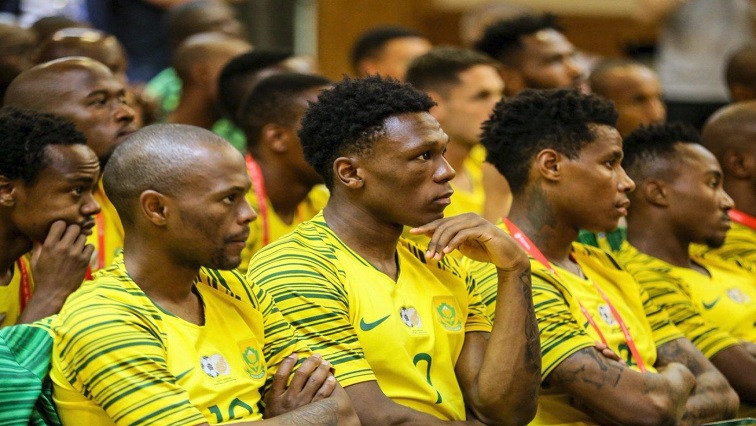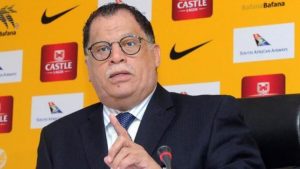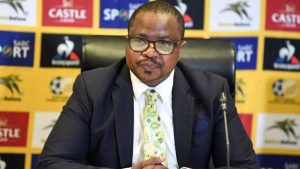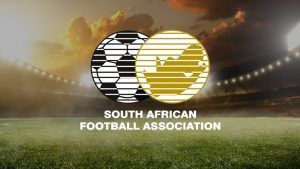The lack of football around the globe has left most of us blue with very little to keep us glued to our TV sets as the coronavirus pandemic has brought just about everything to a halt. It’s a whole new experience. It’s odd!
But then again it has provided us with new opportunities to be creative with the time we have on our hands. Well, that is if you are privileged enough not to worry about where your next meal will come from.
Arthur Ashe, the only African-American male tennis player to win the US Open and Wimbledon singles titles, once said, “Start where you are. Use what you have. Do what you can.” The quote carries even more weight now as we scramble to do something new every day, all within the confines of our regular yards if you are fortunate enough to have one, while Empolweni residents, in Khayelitsha, need a court order to have … just a mere shack, in order to comply with the lockdown regulations. How shameful of the Western Cape government!
Back to the topic. Taking Ashe on his advice, football has been suspended and cannot be played. We can’t play it; we can’t watch it! Doing what we can, let’s talk about it. This, also as we remember the life of one of the best players to come out of SA, trealityhe late John ‘Shoes’ Moshoeu who passed on five years ago.
For decades, the lack of a National Playing Philosophy in South Africa has been cited by renowned football technicians as one of the major drawbacks for the advancement of football in the country. This has been the case from grassroots to professional football, culminating in poor performances by the national team. In the attempt to cut corners and seek immediate glory, the myth that set in was that the right coach for the national team could provide quick solutions to the problem. One after the other, coaches were hired and fired. None having the much sought-after magic wand. Upon his appointment, Carlos Alberto-Parreira pointed out that the lack playing philosophy was going to make his job with Bafana Bafana almost impossible. He, nonetheless, took his chances but understanding the dynamics of international football, he didn’t stay on until the World Cup – perhaps not wanting damage his hard-earned reputation by overseeing a host nation team that would be the first to fail to make it out of the group stages.
Following the 2010 FIFA World Cup in South Africa, FIFA technical experts found that the factor that mostly contributed to the failure of five out of six African nations rested with the trend of employing foreign coaches who did not identify with the African culture, mentality and lifestyle. But what’s African culture, mentality and lifestyle, all of which differ from one nation to the other, got anything to do with football because football, as some would argue, is universal?
We will answer that question later on but for now, a more immediate question is, what is a South African National Philosophy, and its attributes?
University of Pretoria FC Head Coach, Zipho Dlangalala says, “For me, the SA Football Philosophy is based on three legs – technique, mobility and creativity. It is evidenced by short pass combinations, continuous movement – physical and psychological-, and a lot of improvisation. Players are always looking for new ways to express themselves in the game. It is very offensive, in nature. Defending is a ‘default’ moment. You can go on and on – self-expression, exuberance, team cohesion, individual arrogance, technical, fun, carnival, intriguing, etc.”
Football Development Coach Omar Davids says, “A playing philosophy is a system of knowledge and beliefs used to define a particular way of playing football. Our playing philosophy is possession-based football. It is characterized by the control of the play from keeper to striker, imposing a unique style on the game. There’s a predisposition to short passing, creativity and improvisation. It can be expressed in a variety of tactical applications from very organized defensive structures to individuality and fluid individuality. Opponents’ ability to play long balls is limited by not allowing time and space. The dynamic nature allows for a fluid transition from defence to attack. All defenders are able to attack after regaining possession through a compact defensive organisation. Due to sustained movement mobility, players use variations of pace and intensity to outwit opponents. There are optimal benefits for the natural agility, speed, endurance and explosive power of our players. The mentality to avoid fouls, winning, determination, resilience and generation of satisfaction to dominate opponents underpins our playing philosophy.”
For Former SAFA Instructor, Coach Sudesh Singh, while he doesn’t disagree with the descriptions above, what is important to note at the moment is that the philosophy does not exist.
“We don’t currently have one that’s fully implemented at all levels of the game and that is what we need to start correcting. Case studies prove that countries, who achieve success internationally, all have a National Playing Philosophy that’s specific and relevant to their football culture and environment. This National Playing Philosophy will then define how one designs a coherent technical policy that provides a framework, guidance on how a national association should structure, organize and operate on all technical matters, like how national coaches are selected; the immediate, medium and long-term vision and performance objectives of the association; the criteria to select players for the various national teams, etc.”
What are the unique attributes of African players?
“There exist unique traits of creativity and improvisation associated with disguise and tactical surprise. Players are able to function in a diversified range of positions due to their mobility and capacity to understand different roles and positions,” Davids explains. “The physical capacities of reaction speed, explosiveness, speed and endurance allows for distinction somatic factors (specifically built of footballers) to complement our play dynamics. Our players have inherited a strong dedication to the sport despite adversities of oppression and marginalization. Our players are resilient, creative and artistic by nature. Most if not all of these characteristics have been exhibited by the greats in world football; Maradona, Platini, Cruyff, Pele, Puskas, Eusebio, Zidane, Ronaldo, Ronaldinho, Messi, Xavi, Iniesta, Kaka, etc.”
However, based on the above descriptions of the National Playing Philosophy, there are very few teams that exhibit the playing style close to that philosophy.
Over the years, there are a few scattered examples and when those teams played what in street lingo is regarded as Diski, people took notice, and important to note is that people took note despite the particular club’s popularity – perhaps because it is philosophy South African fans easily identify with? Think Golden Arrows years back when they were coached by Manqoba Mngqithi. Think Chippa United when it was coached Dan Malesela or TS Galaxy in the National First Division. Think University of Pretoria also in the National First Division coached by Zipho Dlangalala. Not so popular clubs in SA football, but popular by their style of play for that particular time; oh well, except for Chippa United that is still able to get attention for their philosophy of a different kind -firing coaches. As usual, writing this I can already hear some asking, “But what has that football won, except for TS Galaxy winning the Nedbank Cup?”
But this philosophy has won more than just the Nedbank Cup for TS Galaxy. This philosophy, albeit by default and not by design, won, among others, the 1995 CAF Champions League with Orlando Pirates; the 1996 Africa Cup of Nations with Bafana Bafana; qualified for the 1998 and 2002 FIFA World Cup; beat the Ronaldinho-led Brazil at the 2000 Sidney Olympics with SA U23 under Shakes Mashaba; took Mamelodi Sundowns to their first-ever final of the CAF Champions League in 2001; let alone throngs of supporters who used to flock to the stadiums during those times.
And then what happened?
The simple explanation of what happened, which seems to elude the masses is that, and this goes to the heart of the problems local football is facing, is that prior to 1992 local football had been banned from international participation, as part of sanctions against the apartheid government of the time. This left local football purely undiluted and uncontaminated by external forces. This changed when South Africa was readmitted to international football in 1992 and began to attract wrong foreign influences, exacerbated by the fact that the country itself did not have its own defined National Playing Philosophy and structures to control who could come in and do what, instead arbitrarily allowing contrasting foreign coaching philosophies to confuse football development in the country. It is as simple as an empty stomach being able to keep you alive longer than a stomach fed poison which is bound to expedite your day of death. South Africa was being fed poison from then on and a mere look at Bafana Bafana’s international performance tells a story that defines how the foreign influence began, not just stalling, but reversing SA’s progress. 1996 – Afcon Champs; 1998 – Finalist; 2000 – Semifinalists; 2002 – Quarterfinalists; 2004 – Group Stages, which eventually culminated in the country failing to even qualify. Go figure!
Losing the plot…
“The problem with the attitude towards this style of play is that when the team wins playing this beautiful football, no one ever says ‘They won because of that beautiful football.’ But when you lose playing this beautiful brand of football, a lot of people rush to say, ‘They lost because of the football they play. It doesn’t produce results.’ That, for me, doesn’t make sense,” laments Dlangalala.
Former TS Galaxy Coach, Dan ‘Dance’ Malesela believes the plot is being lost.
“We have a challenge. Just now I was watching TV and I heard a guy saying, ‘Good football doesn’t win you matches.’ And I said, ok, which football does win matches? Bad football? Is that what you are saying?” asks Malesela. “Here we want to see 2-0. It’s okay. It doesn’t matter how it came. And then we can go to the streets and sing and dance. But the finer things … we don’t have moments to talk about. The only two moments that are there are two goals. Other than that, there’s nothing. You know you go to a match, tomorrow you have actually forgotten how the match was. Your only consolation is that your team has won. So, we are losing the plot here.”
In the video below, Former TS Galaxy Coach, Dan ‘Dance’ Malesela lashes out at haters of beautiful football:
Now, to answer the question, what’s African culture, mentality and lifestyle, all of which differ from one nation to the other, have anything to do with football, in his study, “The Cultural Dimensions of the Coaching Session,” Kevin Sherry, reviewing his coaching experience in Japan, concluded that “advanced Western coaching concepts and methods recommended to other cultures have little or no positive impact on the dynamics of training and match approach if the strengths and mentality of the players from those ‘cultures’ are not recognised in the contents of the training session.”
So, football is not so universal. There are, of course, universal aspects of the game like its laws. But culture is very specific to a group of people and if culture determines the playing philosophy, then the playing philosophy is specific to a group of people. Samba is described as a lively, rhythmical dance of Afro-Brazilian origin. It is neither universal nor found in the UK, but Brazil specifically. You take Samba out of the Brazilian playing philosophy, you have killed Brazilian football. And aren’t we witnessing that already? Coaching principles are universal, but training methodologies should reflect the specifics of a country and/or region to achieve long-term sustainable performance objectives!
In the video below, Sipho Kekana discusses the National Playing Philosophy with SAFA President, Danny Jordaan:
A plethora of evidence exists that biological, physiological and cultural dispositions of players must be strictly respected when coaching and training content is defined and applied, which then begs the question, who compiled SAFA’s coaching education syllabus and how relevant is it to the needs of local players?
The penchant is to epitomise everything that comes from Europe
In a letter written to the SAFA by the South African Coaches Association (SAFCA) on the 29th of July 2015, the coaches’ body laments the penchant by the football mother body to disregard any input and accept, without question, ‘solutions’ from outside.
The letter reads in part, “Following the recent resolution of the SAFA Congress, SAFCA was requested to make a presentation on the National Playing Philosophy at the SAFA workshop on 4-5 June, 2015. The information concerning all the aspects of bio-cultural and environmental specificity that should govern football in this country as well as additional evidence was incorporated in the SAFCA presentation as a major contribution to the progress of local football.
The outcome of the workshop was highly significant as the findings and recommendations made by the SAFCA Technical Group were unanimously endorsed and the process of implementation given the green light.”
The letter further says, “the realistic inputs and evidence led to the agreement on proposals regarding the urgent updating or changing of coaching education syllabus, the introduction of talent discovery and development criteria and new effective solutions that can maximise local talent to achieve international success, e.g., ‘Vision 2022, etc. The harmful effect of indiscriminately allowing contrasting foreign coaching mentalities and methods to downgrade SA’s exceptional young talent was also strongly emphasised at the workshop and generally denounced.”
But check this!
The letter laments they were shocked to learn the associations’ Technical Director “officially announced that ‘the association is in the process of forming a partnership with the KNVB to conduct D License Coaching Courses.’ This surprising new turn is in total disregard and blatant contrast with the resolutions taken on 4-5 July, 2015 at the SAFA/SAFCA workshop that approved, among other requirements, a joint effort to review, change and adopt the coaching educations syllabus according to the SA Football Philosophy.”

And this is nothing new! Covered in dust and most probably forgotten about, SABC News managed to acquire a document titled, ‘SAFA’s Reconstruction and Development Programme’, which has been sitting at the SAFA offices since 1995. The document was compiled by the late Ted Dumitru following his successes in producing quality players at the Chibuku Training Centre in Soweto in the early 90’s.
It is stated in the document that in the South African football context, the style of play should manifest “highly diverse and sophisticated ball skills; agile, deceptive and extremely efficient feints and body movements; predominantly short-passing game; superior team mobility due to exceptional natural endurance of players; overall excellent attractiveness of actions and display of a continuous creative attitude” among other recommendations. From this information alone, it would mean while the general belief is that there was no document that outlined what SA style of play should be there is in fact such a document, which was, for unknown reasons, swept under the carpet by the previous SAFA administrations. It would also mean that while the country’s football has been on a downward spiral since the 1996, due to an influx of contrasting foreign coaching philosophies at development level, PSL and National level the answers have always been there. This document is understood to have also been applauded by FIFA at the time. Yet, nothing was done!
The development programme is understood to have been utilised successfully at the Chibuku Training Centre in the ‘90’s, in Soweto. Testimony to the fact that South Africa had a great technicalarsenal to lead the world in football, Heinz Marotzke, who for many years managed the FIFA/Coca Cola International Academy, was quoted as saying, “I am appealing to sponsors to go and have a look at what is happening at Orlando (Soweto). I have seen some of the best football schools in South America, Germany, Mexico and Fiji but this centre is unique, the only one of its kind in the world.”
Before he was fired as the Bafana Bafana coach, Mamelodi Sundowns coach, Pitso Mosimane, was quoted as saying, “You see, (in) South Africa, we don’t want to accept reality – things have not been going well for us since we won the 1996 Afcon, but we are not changing the formula. We have a problem, but you are going the same way; we must do things right in terms of our development programmes. We don’t want to accept that the world is catching up with us. We don’t want to accept that we are not scoring goals. We don’t want to accept that our development programmes are not good.” But as usual, he was not going to be so honest about the realities of the local game and keep his job.
FIFA’s self-contradictory stance on African football
In his analysis, ‘FIFA’s self-contradictory stance on African football,’ published on the SABC News website in 2014, Dumitru wrote, “As it stands now – and immeasurably detrimental too – the elements of African players’ inborn characteristics, constitution, temperament, mentality, local traditions and culture are generally disregarded in the content of coaching qualification schemes endorsed by the very same FIFA, UEFA, CAF as well as the National Associations in both African context and global coaching syllabuses.
Unlike Spain, Brazil, Germany, etc., where the philosophy of FIFA’s Study Groups applies perfectly, e.g., ‘only native coaches know how to adapt inborn qualities such as constitution, temperament, etc., to the elements of technique, tactics, fitness and develop own style’, African coaches, in particular, are fed wrong recipes (read coaching syllabus). The majority of those ‘imported ‘coaching theories and practice are non-African in nature and thus, unscientific in content. They are all in the name of indiscriminately globalized ‘modern’ football’. In the South African case, for instance, there is a ‘FIFA-approved’ coaching syllabus that confusingly amalgamates coaching theories and norms from the German and Dutch coaching with flagrant disrespect for the unique and rich nature of local players and culture and traditions of the SA game. As a result, such irrelevant content is not too different from what CAF-organized coaching courses are offering.
In this atmosphere of coaching abnormality, it is seen as normal to hire foreign coaches from Europe as their philosophy is strongly represented in the way ‘modern football’ and its coaching tools are enforced on the current African approach to the game. This imported ‘cultureless, ghost’ coaching requires unconditional acceptance of:
- Limited technique – not too fancy! – No improvisation!
- Only simple tactics – No risk! No unnecessary dribbling! ‘Play the ball forward only! One-touch football, regardless! Play percentage football, not attractive! Hard and uncompromising tackling!
- Fast and furious with physical dominance and war mentality, etc.”
The question is, is there light at the end of the tunnel for SA football? That’s a question we will explore in the next piece. But for now, in Arthur Ashe’s words, let’s start where we, use what we have and do what we can. In any case, President Cyril Ramaphosa has given no indication that football could be back on our screens anytime soon.
In the audio below, Football Coaches Dan ‘Dance’ Malesela and Andile Cele discuss the National Playing Philosophy with Mpho Molefe on Ukhozi FM:
By Sipho ‘King K’ Kekana @KingKAzania






